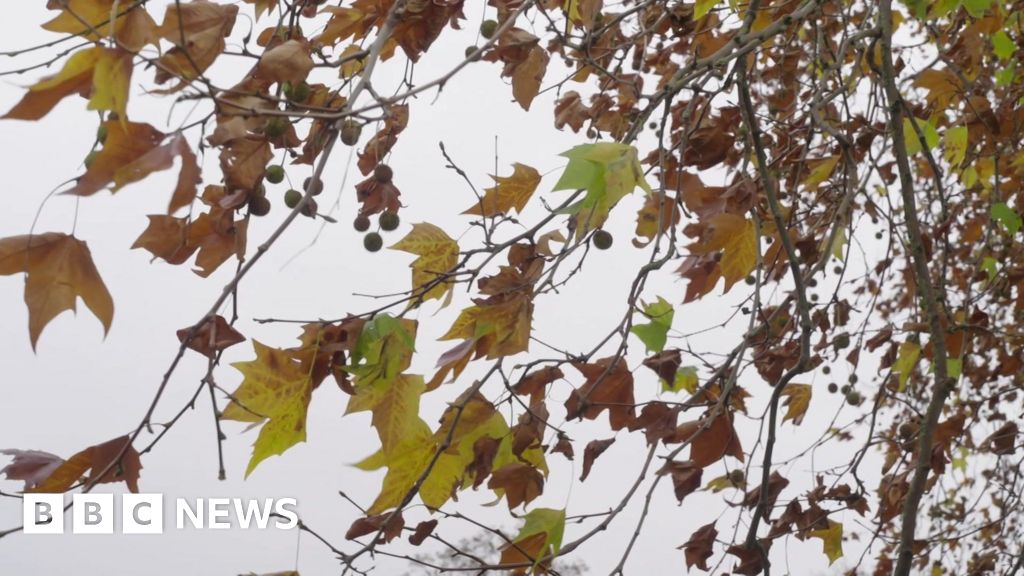
"He said it was "really hard to imagine how warm we're going to be - but this is November and we're in double figures. "We should be in single figures right now and this is all having an impact on trees. "What we will see is some trees will go into autumn really early, like the false autumns we see in the summer because they're really stressed so we won't see that big impactful change in colour.""
"Head of coffee research at Kew, Dr Aaron Davis, said his team was trying to help the farmers that are being impacted by climate change. "The way we're doing that is providing them with alternative coffee crop species so not Arabica, not Robusta but coffees that can thrive in higher temperatures, under drought conditions and are easier to grow for farmers. "Around the world there are around 100 million people engaged in coffee farming"
"The capital is the hottest part of the UK, and is home to the Royal Botanic Gardens at Kew, where a new carbon garden has been created. The tree team have introduced Parrotia persica, known as the Persian ironwood, and Koelreuteria paniculata, also known as the golden rain tree. The coffee research team has been looking at crop species that can thrive in higher temperatures and under drought conditions."
COP30 in Brazil coincides with scientists in London developing climate-adaptive plants and coffee crops. London, the UK's hottest area, hosts the Royal Botanic Gardens, Kew, which created a carbon garden and introduced heat-tolerant trees Parrotia persica and Koelreuteria paniculata. Kew warns unusual warm conditions are affecting tree phenology, causing stressed trees to enter autumn early and reducing typical colour changes. Staff recommend diversifying tree selections to species like Oriental hornbeam and Persian ironwood suited to warmer climates. Kew's coffee research team seeks alternative coffee species beyond Arabica and Robusta that tolerate higher temperatures and drought, aiming to support around 100 million coffee farming livelihoods worldwide.
Read at www.bbc.com
Unable to calculate read time
Collection
[
|
...
]